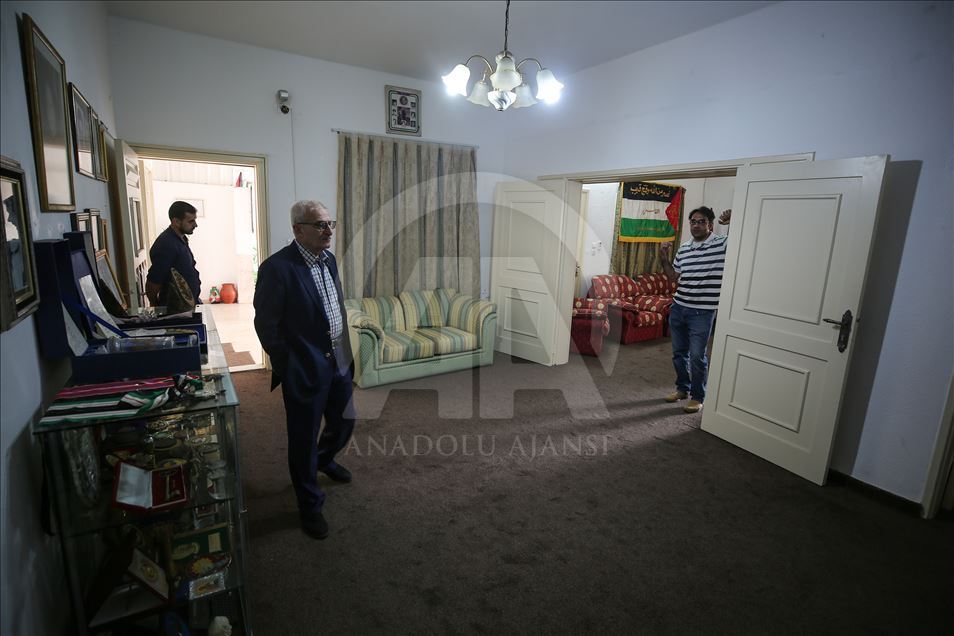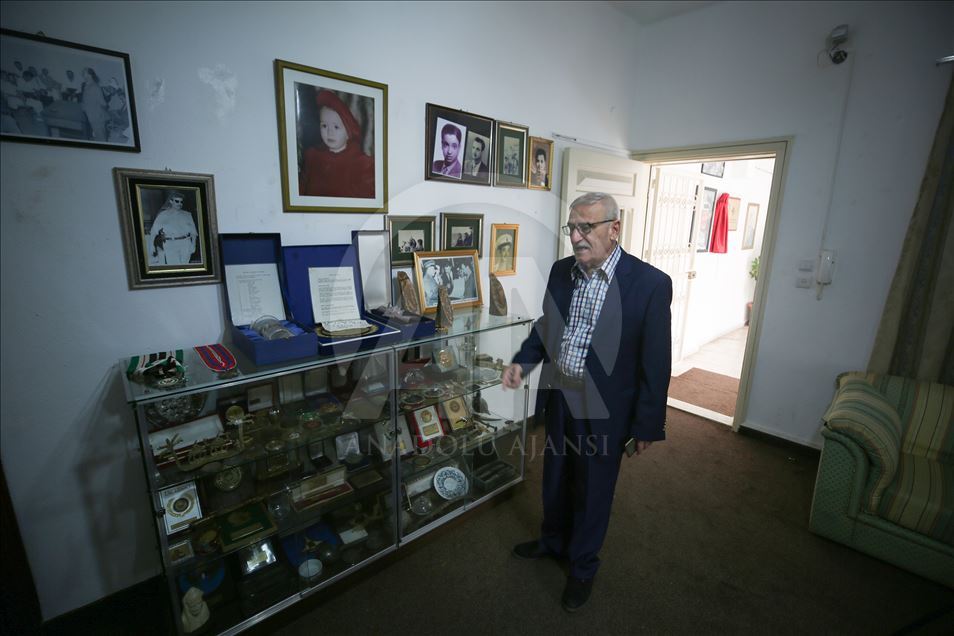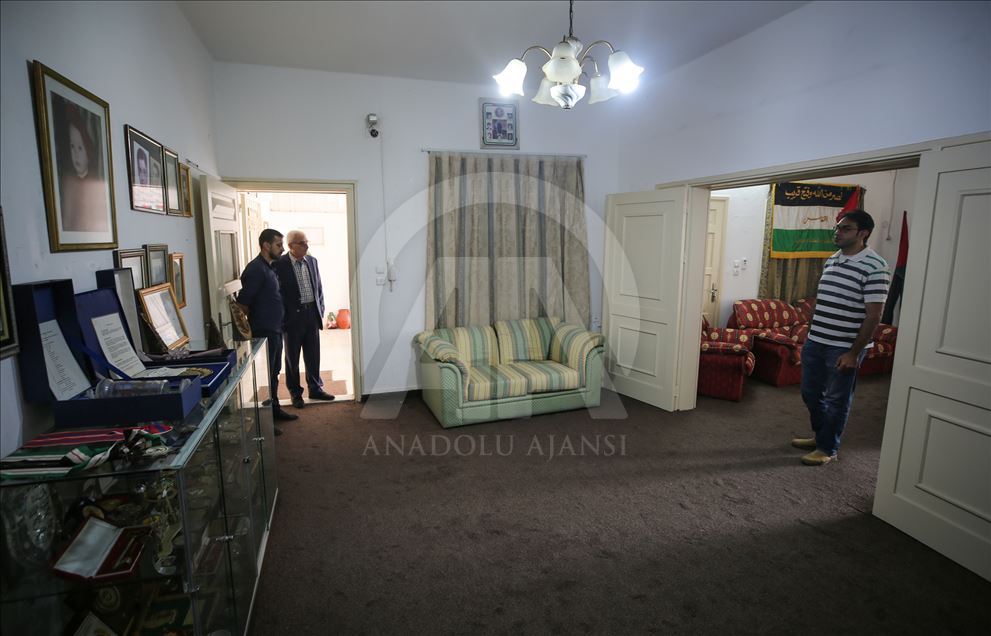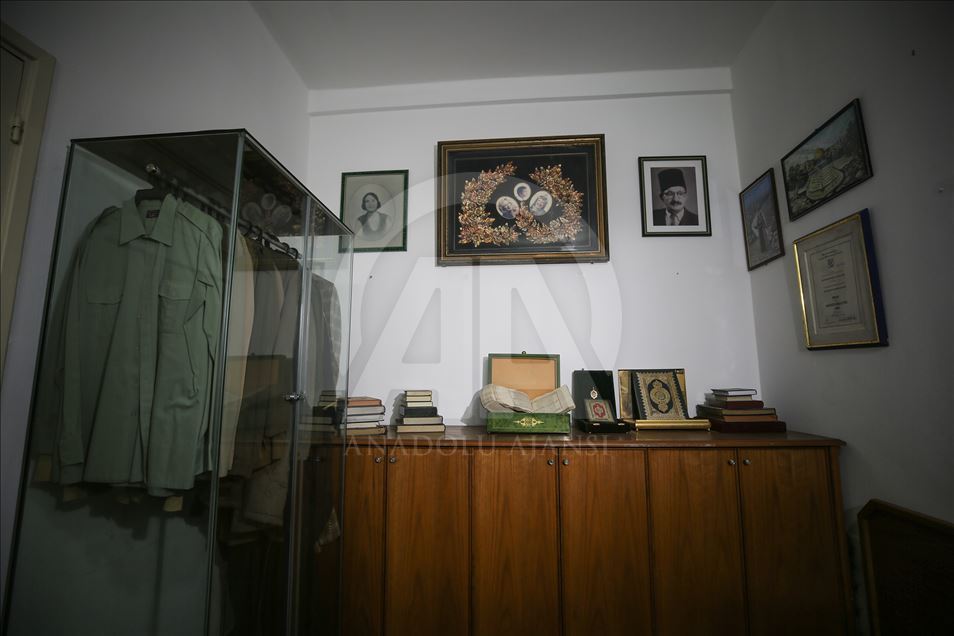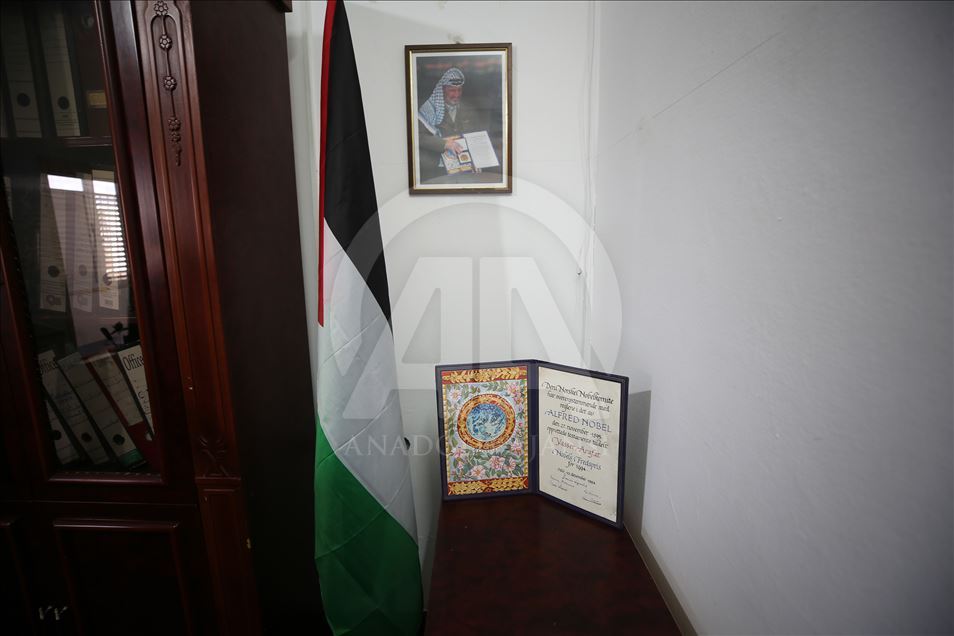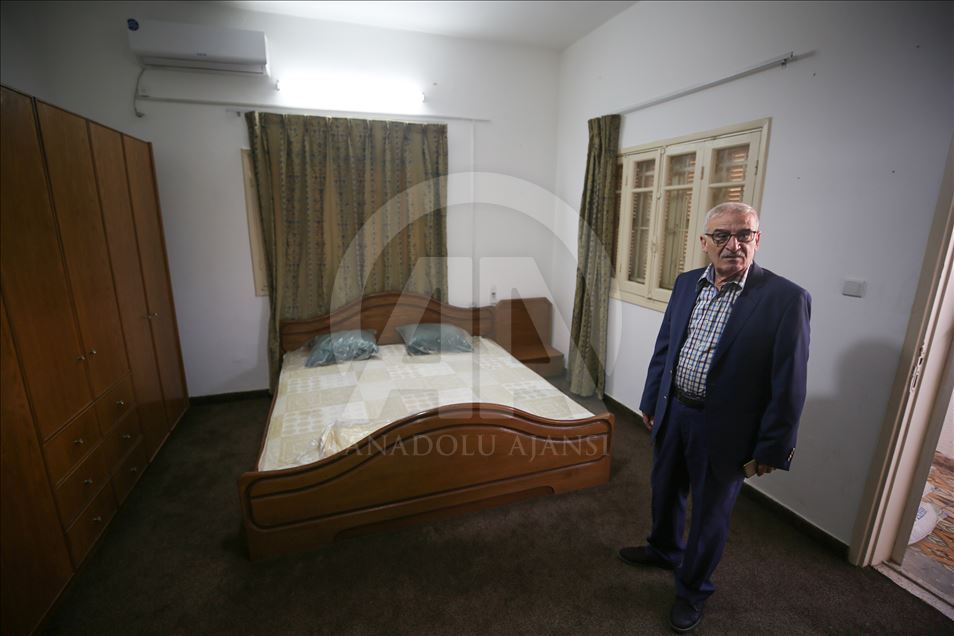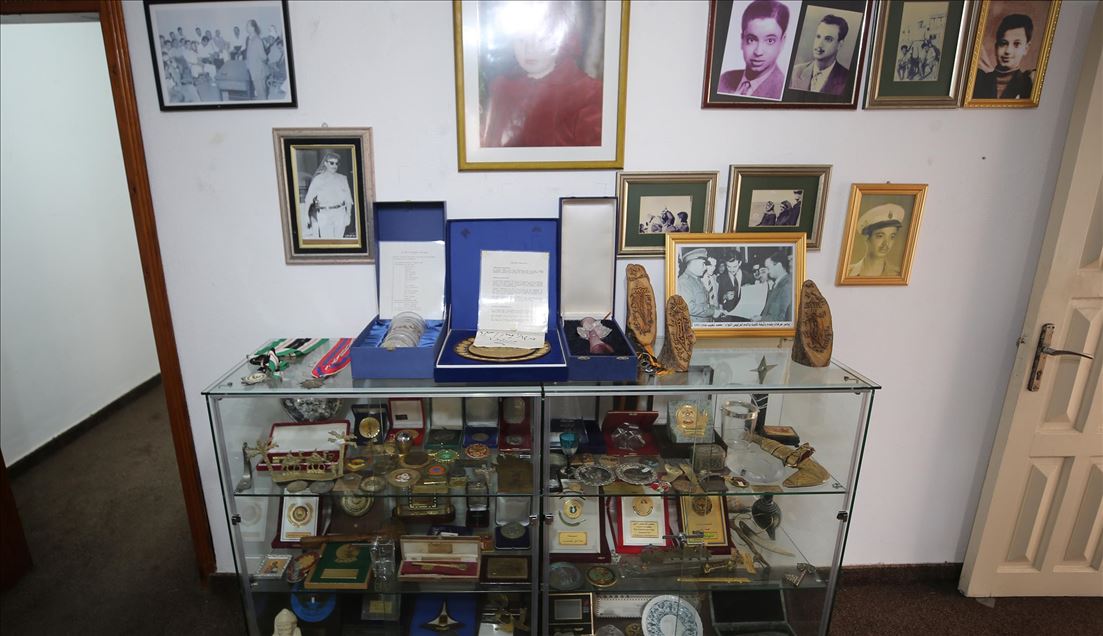Gaza residence shows Yasser Arafat's modest lifestyle
Arafat lived in Gaza house after years in exile on his return to Palestinian territories in 1994

GAZA City, Palestine
Fifteen years after his death, the Gaza residence of Yasser Arafat still reflects the simple and modest lifestyle of the iconic Palestinian leader.
Arafat lived in the house in the southern Gaza Strip with his family after years in exile on their return to the Palestinian territories in 1994 under the Oslo Peace Accords with Israel.
Owned by the Palestinian Investment Fund (PIF), the house does not show any sign of luxury.
"In 1995, Arafat refused to register the house in his name, saying it was a public property," Musa al-Wazir, director of Yasser Arafat Foundation, told Anadolu Agency.
Founded in 2007, the foundation is responsible for preserving the legacy and heritage of the late iconic leader and to commemorate him.
The bedroom in the Gaza house has simple furniture that can be afforded by any low-income family.
His clothes did not carry famous brands, but were mostly "popular" outfits worn by ordinary Palestinians.
"These simple clothes can be afforded by any Palestinian," al-Wazir said.
Light decorated curtains can be seen hung on the widows of all rooms in the house.
Arafat's legacy
According to al-Wazir, Arafat has refused to put any equipment in the house for protection against any possible Israeli attack on the residence.
"Sand bags were the only thing the iconic leader agreed to place around the house for protection in case of Israeli attack," he said.
One of the rooms in the house was used by Arafat's wife Suha to run her social activities, al-Wazir said.
There are a couple of documents and photos of the Palestinian leader on the desk as well as the Nobel Peace Prize he won in 1994.
In the main hall of the house, there are a number of couches and a wooden table.
"Arafat took his breakfast in this hall a few times, but he did not spend much time here," al-Wazir said.
The Gaza residence is full of Arafat's medals, badges, honorary shields and souvenirs he received during his visits and meetings with world leaders. Not to forget the map of Palestine and a portrait of Jerusalem's Al-Aqsa Mosque that reflect his struggle for the Palestinian cause.
"Arafat did not spend much time inside the house since he was totally preoccupied with developments of the Palestinian cause," al-Wazir said.
In 2001, Arafat left Gaza to the West Bank city of Ramallah, where he lived in the presidential compound there.
Some of Arafat's belongings in the Gaza house were lost during the internal fighting between Palestinian groups Hamas and Fatah in 2007, which resulted in the former taking full control of the Gaza Strip.
Al-Wazir said the main goal of the Yasser Arafat foundation is to "preserve and maintain the late leader's legacy".
The foundation organizes an annual award named as "Yasser Arafat Award for Creativity and Innovation". It also supervises various activities and events aimed at promoting the Palestinian national spirit.
On Nov. 11, 2004, Arafat died in France -- under highly suspicious circumstances -- at the age of 75. Until now, doctors have been unable to determine the exact cause of his death.
Palestinians accuse Israel of poisoning Arafat, a claim denied by Tel Aviv.
*Ahmed Asmar contributed to this report from Ankara

